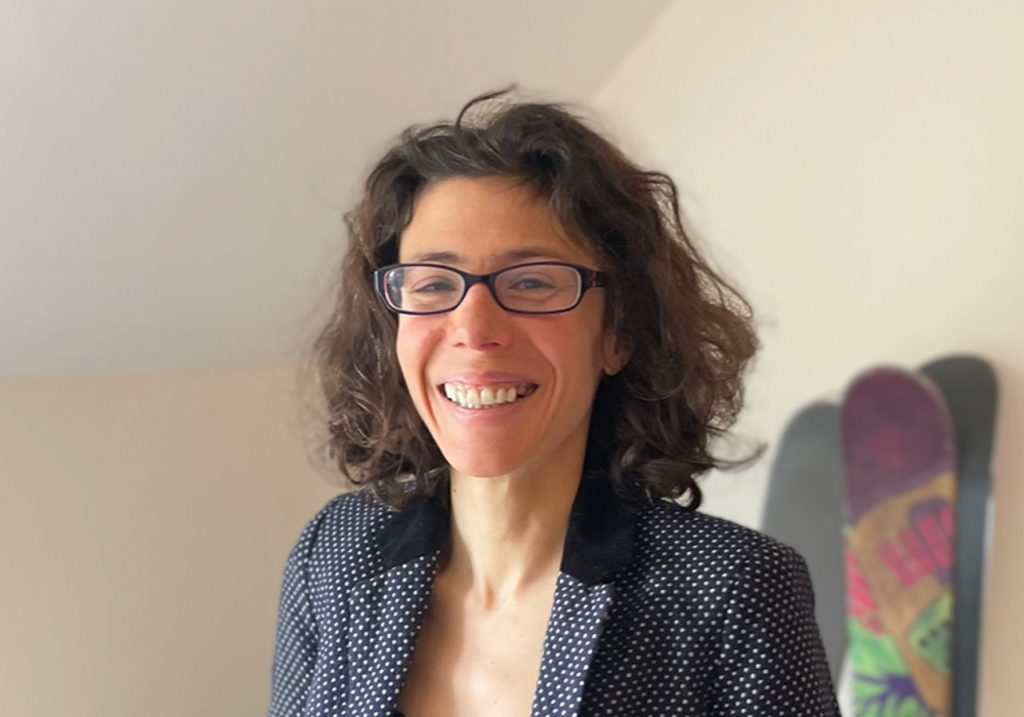
In our latest instalment of DoBS profiles, we spoke to Dr Cynthia Sandor, Edmond J Safra Lecturer in Parkinson’s Disease who has recently joined the department. Here Cynthia tells us more about her research interests but also what inspired her to pursue research in Parkinson’s Disease.
Introduce yourself – who are you and what do you do?
I’m Cynthia Sandor Edmond J Safra Lecturer in Parkinson’s Disease. My research is working to identify Parkinson’s and related disorders earlier than is currently possible. This will make a huge difference in trials for new drugs and when these treatments begin to emerge. By the time someone starts experiencing symptoms of Parkinson’s, they have already lost 50% of neurons in the substantia nigra, so earlier diagnosis really is key to ensuring future treatments can be administered when they are most likely to be effective.
What will your new programme focus on, how does it differ from your programme at the University of Cardiff?
At Cardiff, I was focused on understanding why patients present differently in terms of disease progression, symptom type and severity when they first come into the clinic. Now, I’ll be looking before clinical diagnosis, at digital and blood biomarkers and how we can detect the disease at an earlier stage. Some of this work will follow on from my study last year that found smart watches could detect Parkinson’s years before clinical diagnosis. That study used UK BioBank data, now we’re going to look at a clinical dataset and see if we get the same results.
What initially sparked your interest in your research/your current work?
Genetics. I have been trained as a veterinary surgeon, and my move to research comes from my interest in genetics. I was lucky to have Michel Georges as my professor in genomics during my third year of my veterinary studies. He is a world leader in animal genetics and genomics, but also a vet like me who badly turned to research. His course was brilliant, but it was an absolute nightmare for vet students aspiring to deliver calves three years later. I truly loved genetics and was fascinated by how the genome structure can explain our identity and its potential applications. Genetics is now absolutely everywhere. After my veterinary training, I pursued my PhD in statistical genetics with him, mainly in animal genetics, but it was more fundamental than my current research, very focused on livestock species. My transition to human medical genetics began at the end of my PhD; I started to work with Edouard Louis, a gastroenterologist, on the first genome-wide association study of Crohn’s disease. I was more interested in the application of genetics in the medical field than predicting the breeding value of dairy cattle.
Why did you choose to join Imperial College London?
I was offered a lectureship position through the Edmond Safra Foundation, which is a fantastic opportunity and the dream of all Emerging Leaders and fellows! My research is mainly computational, and Imperial is a leading institution for computational research, so I feel extremely lucky to have secured this rare position and I had absolutely no hesitation when it was offered to me. Taking on a Group Leader position also at the UK DRI, will allow me to collaborate closely with those who are the best in their field and to facilitate the translational application of our research. Parkinson’s is a multidisciplinary challenge that requires diverse expertise to advance my research and make it more impactful.
What are you particularly excited about in the Parkinson’s research field at the moment?
I’m fascinated by the new hypothesis of ‘brain-first’ versus ‘body-first’ Parkinson’s. This suggests that in some individuals, the disease originates in the brain, while in others, it begins outside the brain, specifically in the enteric nervous system of the gut, often referred to as our ‘second brain.’ Understanding where the pathology starts and spreads—drawing a parallel to cancer—can revolutionise our approach to the diagnosis, treatment, and management of not just Parkinson’s but alpha-synucleinopathies in general.
When you are not working, what are your main hobbies and passions?
And finally – if you were exiled to a desert island but allowed one luxury item, what would it be?
Obviously, some music from my Spotify playlist would make me happy to dance to disco for a month on a desert island.